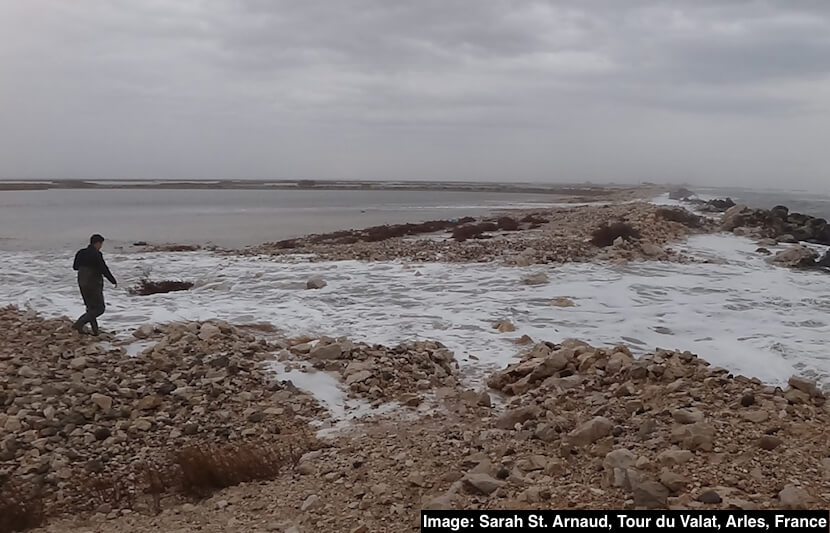An international group of researchers has combined the risks of accelerated climate change in the Mediterranean Basin with the region’s additional environmental changes.
The study is the first of its kind. It was led by Wolfgang Cramer from the Mediterranean Institute for Biodiversity and included researchers from the City University of Hong Kong (CUHK).
The researchers hope their findings will help spur policies for the development of a more sustainable future.
“This paper suggests that the risks posed by climate change in the Mediterranean Sea were underestimated because each was only examined independently,” Michael Tsimplis, a professor in the School of Law at CUHK and co-author of the study, said in a statement.
“But in reality, they are interconnected and interact with social and economic problems exacerbating their impacts,” he continued. “So they all have to be addressed at the same time and within the same financial constraints.”
The study specifically examined environmental risks to water resources, ecosystems, food safety and security, health and human security.
Combining climate issues with the additional environmental problems posed by urbanization, pollution, biodiversity loss and others makes the region’s future look bleak.
Accelerated climate change has made the already poor environmental conditions in the Mediterranean Basin even worse.
Average temperatures in the region have risen by 1.4 degrees Celsius, nearly half a degree higher than the global average.
Even if the world can limit warming to 2 degrees Celsius, rainfall in parts of the Mediterranean could become 10-30 percent less likely. This would have an enormous impact on agricultural productivity.
Climate change, alone, is expected to cause irrigation demands to rise by 4-18 percent. When expected population growth is added to the equation, the demand could rise to 22-74 percent.
The environmental threats to food production are especially concerning to southern Mediterranean countries that still depend on trade.
But the concerns don’t stop at agriculture.
Urban sprawl, industry growth and tourism development is expected to increase water pollution.
Increased heat waves, sea water acidification, drought and land-use change are growing threats to biodiversity.
Public health and human security is heavily impacted by existing environmental threats. Accelerated climate change will only make things worse.
“Policies for the sustainable development of Mediterranean countries need to mitigate these risks and consider adaptation options, but currently lack adequate information — particularly for the most vulnerable southern Mediterranean societies, where fewer systematic observations schemes and impact models are based,” the researchers wrote in their paper.
“A dedicated effort to synthesize existing scientific knowledge across disciplines is underway and aims to provide a better understanding of the combined risks posed.”



